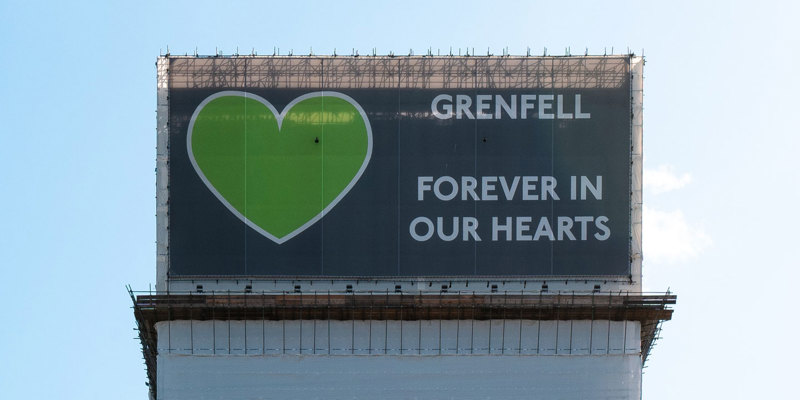
Reflections on the fifth anniversary of the Grenfell Tower fire
Today marks the fifth anniversary of the Grenfell Tower fire.
The Inquiry which was set up in the immediate aftermath is slowly drawing to the conclusion of the evidence-gathering process. The failures and malpractice exhibited by organisations within the public and private sector have at times been shocking. Disregard for the most basic life-safety considerations has been exposed as endemic in almost every organisation brought before the Inquiry and at almost every level of seniority.
The Inquiry is approaching the stage at which it will make further recommendations. Five years on it is worth noting how little progress has been made towards implementing in full the reforms the Inquiry deemed essential at the conclusion of its initial investigation. Of the various organisations tasked with making changes, including central Government, only the London Fire Brigade has come close to implementing the majority of the reforms the Inquiry required.
The Inquiry’s recommendation that the Government introduce a legal requirement that all owners and managers of high-rise buildings hold personal emergency evacuation plans (PEEPS) for disabled and vulnerable residents has recently been rejected. That decision may soon be subject to a judicial review. The recommendation that fire and/or evacuation alarms be installed in all high-rise buildings is still under consideration. The Government is yet to issue national guidance on how to carry out evacuations in the event that a fire becomes uncontainable. For the moment, ‘stay-put’ is still the accepted ‘Plan A’ in the event of a fire in a block of flats, high-rise or otherwise. The Inquiry’s expert on civil engineering and fire safety, Professor Torero has called for stay put to be immediately abandoned as the default policy. Since 14 June 2017 there have been fires involving a failure of compartmentation in Worcester Park, Crewe, Clapton, Barking, Bolton, the Docklands and recently Aldgate.
In the past five years there have been four Secretaries of State for Housing (now known as the Department of Levelling Up, Housing and Communities). 345,000 flats are still considered dangerous; at least 903 buildings over 18 metres require cladding to be removed. It is estimated that 640,000 people are living in flats affected by fire defects and many of those affected will be ineligible for government assistance as part of the current system. Some 2.3 million flats are thought to have been impacted by the building industry scandal uncovered by the fire.
Five years ago I was studying in anticipation of my training contract and saw some footage of the very early stages of the fire captured by residents and shared on social media. Naively I went to sleep thinking that the following morning the fire would have been put out and the residents, though shaken, would emerge from the tower unharmed.
Like so many others I operated under the mistaken impression that such a disaster could never happen in the UK, not least in the richest borough in the country. Three years of intermittent work on the Inquiry and my assumptions about the integrity of the institutions tasked with taking basic fire-safety implications into account and those who work within them has been shattered. What has kept me going is the relentless tenacity of all the lawyers pursuing truth and accountability for our clients and the unyielding courage and dignity of the bereaved, survivors and residents who we continue to act for and support.
Tonight, on this the fifth anniversary of the fire, there will be a silent walk to mark the occasion starting at 6pm at the Notting Hill Methodist Church.
Get in touch
Call us on +44 (0)20 3826 7550 or complete our enquiry form.
